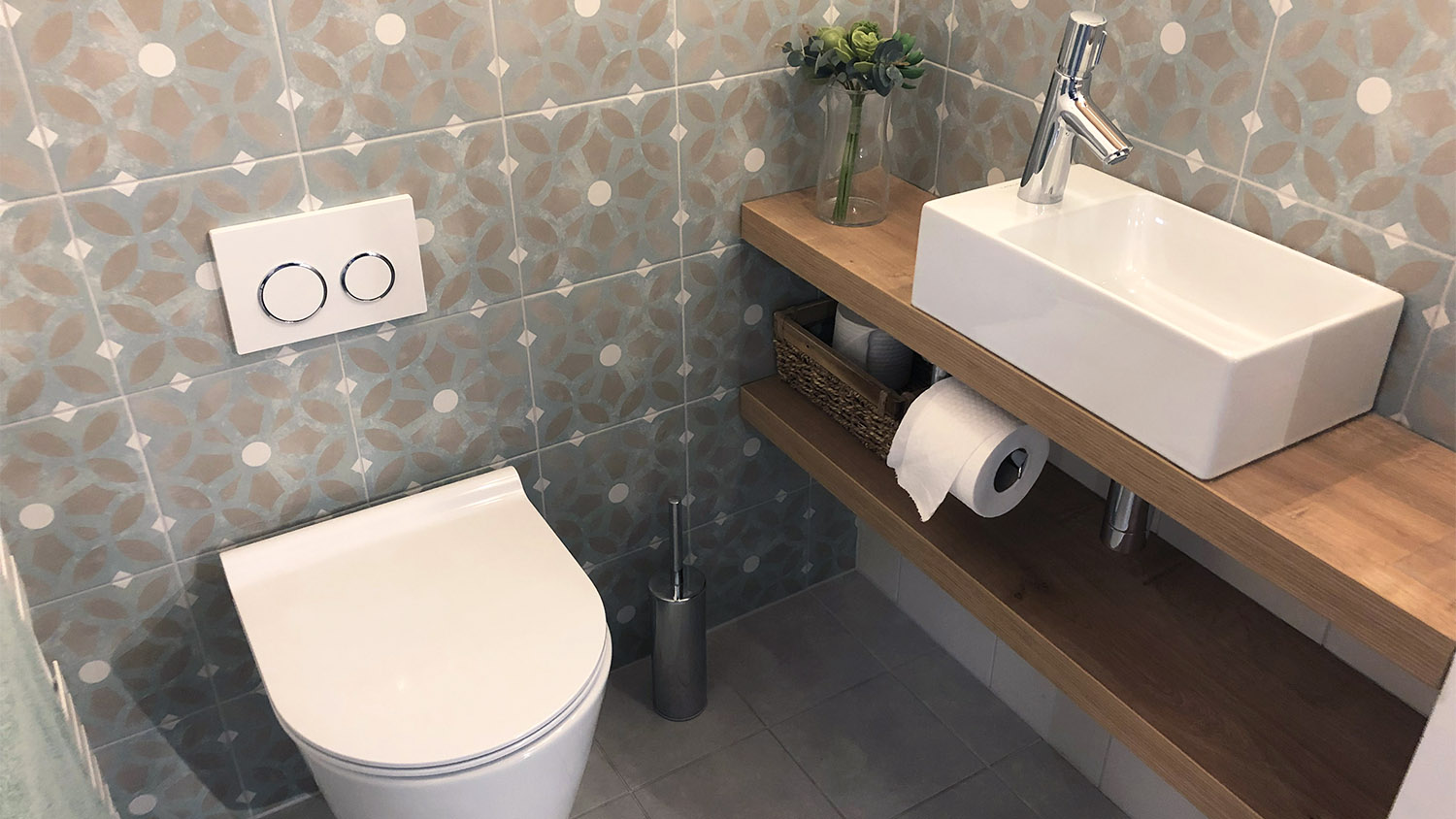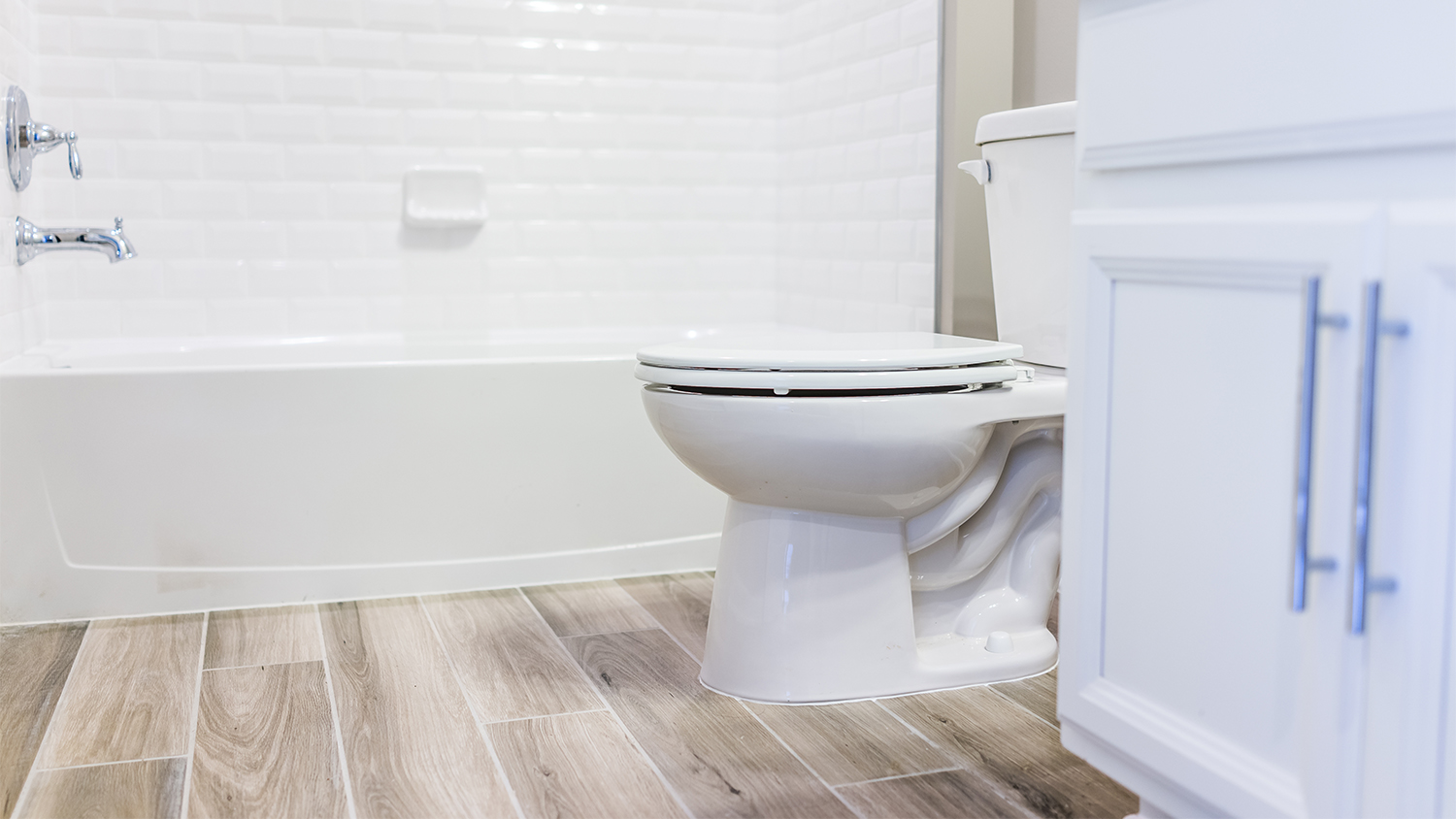
The average cost to connect to a public sewer line in Columbus, OH, depends on the linear footage, piping material, local regulations, and more.
Smelling sewer gas can be unpleasant and even harmful—but fortunately, the problem is preventable and fixable


Sewer gas—largely composed of hydrogen sulfide—can smell like rotten eggs.
The presence of sewer gas in your home indicates there’s some sort of plumbing problem or failure, even if the smell comes and goes.
Low-level exposure to sewer gas can cause eye and respiratory irritation, but these symptoms should go away when you get away from the gas.
A local plumbing professional can help you assess the problem and find a solution.
Plumbing is one of those things where no news is good news: if your indoor plumbing is working well, it’s a flush-it-and-forget-it situation.
But sometimes, sewer smells can come back to haunt us—and even cause physical irritation. The good news? These odors are typically caused by leaks and clogs that are easy to prevent and are fixable with the help of a professional plumber. Here’s what you need to know.
If you catch a whiff of rotten egg smell in your house—and not because you haven’t taken out the compost in a while—you likely have a plumbing problem that needs attention.
The unpleasant smell is hydrogen sulfide, a gas that comes from decaying organic matter (the more polite term for raw sewage). Temporary, low-level exposure to some sewer gas can lead to eye irritation and respiratory issues that should go away when you get away from the gas. Here’s what you should do next.
Hydrogen sulfide is a colorless gas. Exposure to sewer gas can be dangerous, and can lead to eye irritation and respiratory issues like a sore throat and cough for all residents—including your pets. You don’t have to evacuate the premises, but maybe slide open a window or step away from the smell while you plan out your next steps.
Temporary exposure is typically not harmful, and the symptoms should go away soon after you step away. Long-term exposure to the gas, even at low levels, can have more dramatic symptoms, such as loss of appetite, fatigue, dizziness, and headaches. High levels of exposure would not be typical in a home.
But don’t delay fixing the problem. In addition to being unpleasant, sewer gasses, including hydrogen sulfide, are explosive. The best course of action is to get away from the smell and call a local plumber immediately and get the problem taken care of.
If you’re smelling hydrogen sulfide, it could be a minor problem like a dried-out water seal in a floor drain. Or you could have a blocked, broken, cracked, or deteriorated pipe allowing the gas to enter your home. Either way, it’s not going to go away until it's repaired.
In homes, hydrogen sulfide is directed out through vents. If you smell something foul, it’s a sign you have a plumbing problem that needs attention.
The smell is likely strongest at floor level or at the drain. While it might come and go (or you may become so used to it that you no longer notice it), it’s not fixed even if the smell dissipates for a while.
A professional plumber can diagnose the problem and recommend a fix, so everyone in the house can breathe easily again.
The most common cause of sewer gas smells in your house is a leak in your plumbing. You’ll want to prevent even small leaks to avoid major plumbing repair costs. Sewer gas smells could also be coming from your pipes if they weren’t installed properly or are damaged. A local plumbing professional can assess the problem and provide solutions, but here are some more common causes of septic odors in your home:
Ice buildup on plumbing pipes
Blocked vents due to landscaping
A broken septic pump
A full septic tank
A dried-out or leaky toilet wax seal
Clogged drains
All plumbing fixtures should have a sewer gas trap installed (just one of the few plumbing terms it’s helpful to know). This part allows wastewater to leave the house but blocks sewer gasses from getting in. Replacing one costs about $100 for materials and $45 to $200 per hour for a professional plumber’s time.
You can help prevent sewage smells by frequently running water in drains or faucets you hardly use, only flushing toilet paper and human waste, and ensuring you get your septic tank pumped every three to five years.
You can’t stop the ground from settling or the air from freezing, but you can take care of your plumbing. Keeping things flowing will prevent expensive backups and icky smells.
Watch what goes down the kitchen sink drain or gets flushed. Use the compost pail for food scraps, paper towels and cooking oils that can clog a drain. Use the trash can rather than the toilet for things like feminine hygiene products and dental floss. For about $10, you can get a hair trap for your shower drain, which will catch strands before they get caught in the pipes.
The average cost to have a professional clear a clog is $215.
If you have a rarely used bathroom or sink, the pipes can get dry. It helps to use your plumbing fixtures occasionally in between house guests. When you don’t use a fixture, the trap that keeps sewer gasses out can get dry. If the smell is coming from one drain or sink, run some water down it to see if that fixes the problem.
Even though you use your trash, compost pail, and hair catch, drains inevitably get backed up from soaps, lotions, detergent, beard trimmings, and whatever the kids put in there. If it starts to smell or the water drains slowly, you need to clean the drain. Most of the time, this can be accomplished by sliding a thin, flexible wire with a small hook at the end down the drain to grab the clog. You can buy a drain cleaning tool for about $5 at your local hardware store.
Candace Nelson contributed to this piece.
Very professional, polite and helpful. I would recommend him!
Custom Paint Jobs LLC turned our outdated bathroom into a modern masterpiece.
Window Depot did an amazing job on my deck. I wasnt sure what I wanted to do, but their composite decking was affordable and will last a long time. I am excited to have family over, and I am no longer embarrassed by my backyard. Jeff and the ground crew were polite, respectful, and caring for...
Storms Mobile Welding was great to work with. They were prompt, professional and did an overall excellent job on the project. I highly recommend.
AFS was excellent from start to finish. Jess, the sales associate, was fantastic...very knowledgeable and very professional. The installation crew was excellent. I couldn't be more pleased with the process. Best of all, my new floor looks fantastic!
We used Unique Hardwood Floor LLC three years ago to work on the floors of a 70 year old home that needed a great deal of work. Some floors needed repairs, some were replaced and others just needed to be refinished. It was a complicated job as they needed to blend the old and the new to...
I was contacted within a day of posting, met with Alfredo within days, who scheduled a cleaning next day. Gigi and a team member worked quickly and efficiently to give my home a thorough cleaning. I am recuperating from an extended illness and have been unable to keep up with my cleaning or...
Horrible. Did not reply to my numerous Emails and phone calls.
Very good and professional. Happy customer
Phil and Mickey were awesome! They worked as a team and were persistent as they problem-solved my septic system issue. They were very friendly and listened as I explained the steps I had taken prior to their arrival. I called three other plumbing services with no response. Peter's answered...
From average costs to expert advice, get all the answers you need to get your job done.

The average cost to connect to a public sewer line in Columbus, OH, depends on the linear footage, piping material, local regulations, and more.

Need to know what sewer line replacement costs in Seattle, WA? This guide will help you prepare to budget for sewer line replacement done by local contractors.

You should do a septic inspection once every one to three years to ensure you don’t have any issues. Learn about septic inspection costs before scheduling.

Need to know what sewer line replacement costs in Phoenix, AZ? This guide will help you prepare to budget for sewer line replacement done by local contractors.

To unclog a sewer line, you may need to access your septic cleanout. If so, you might wonder: How do I find my septic tank cleanout? Find out in this guide.

In order to function properly, your septic tank needs to be regularly inspected and emptied. How often you should get your septic tank inspected depends on a few factors.